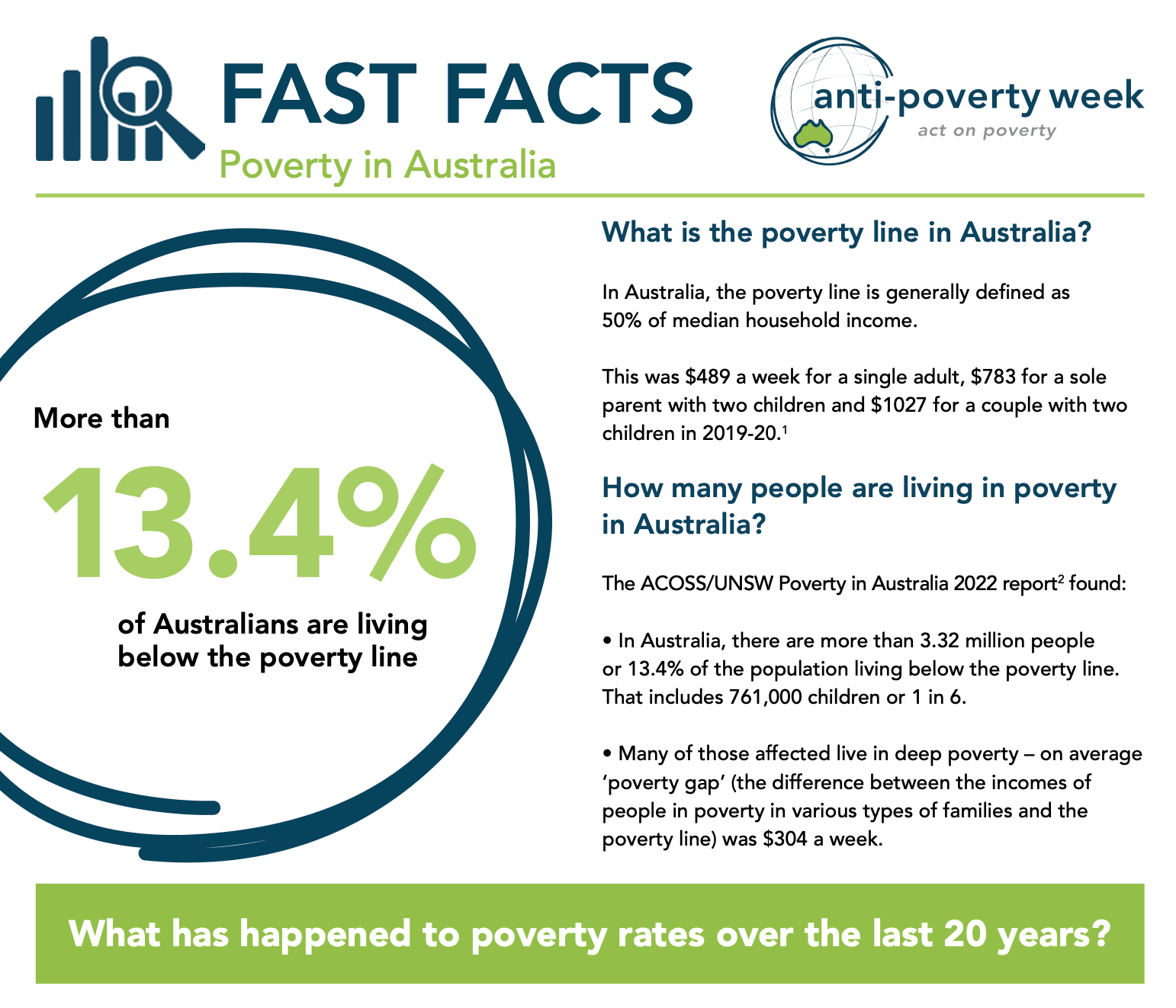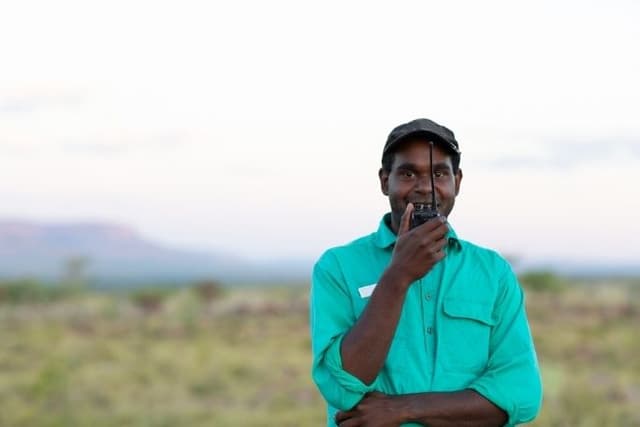
Poverty and Inequality in Australia - Understanding Poverty and Inequality in Australia
Lesson3 of 5 in this unit
SecondaryYear 7 - 8Health and Physical EducationHealthSocialEqualityHomelessnessHuman RightsSocial Action
Summary
Lesson Guides and Printables
Lesson Plan
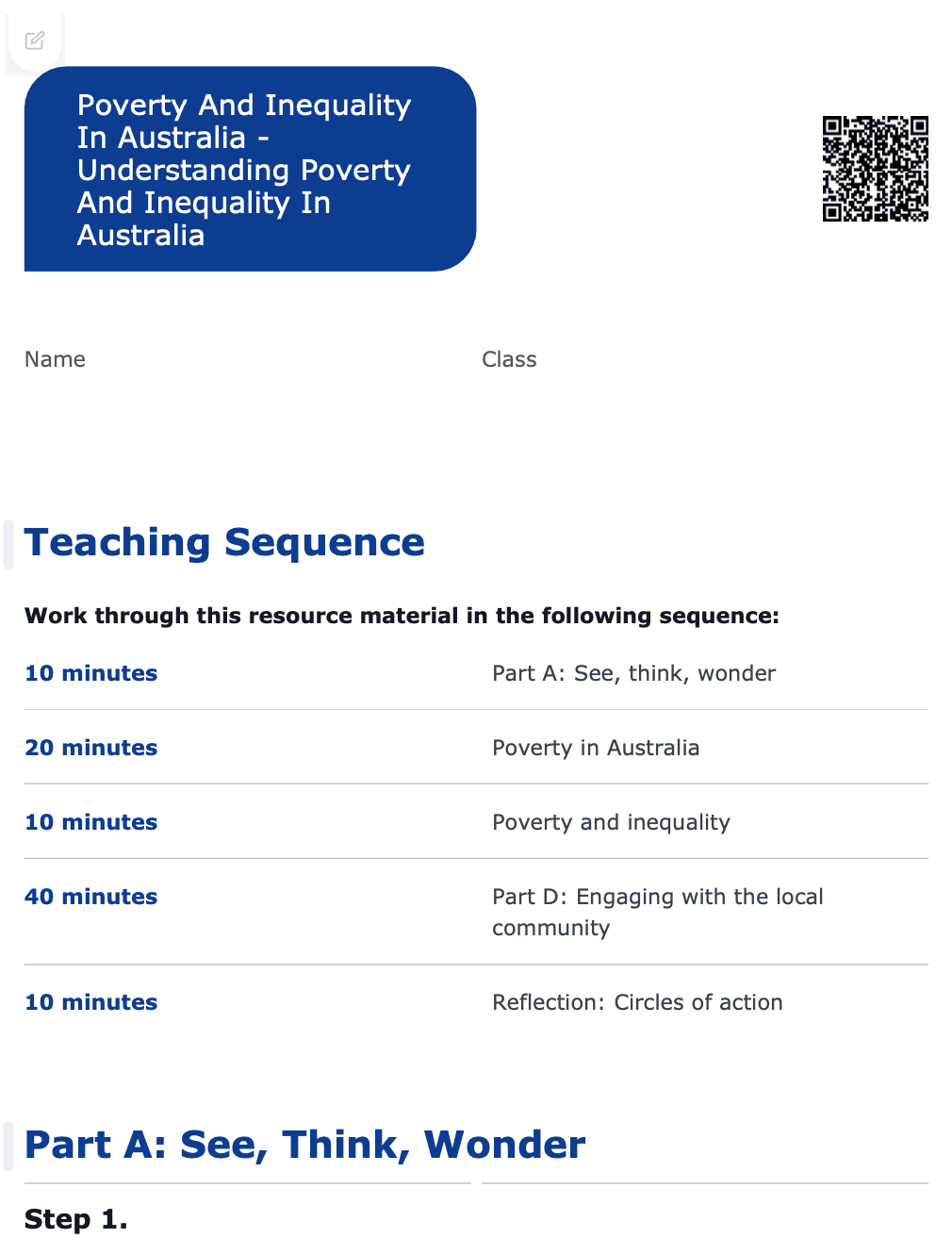
Student Worksheet
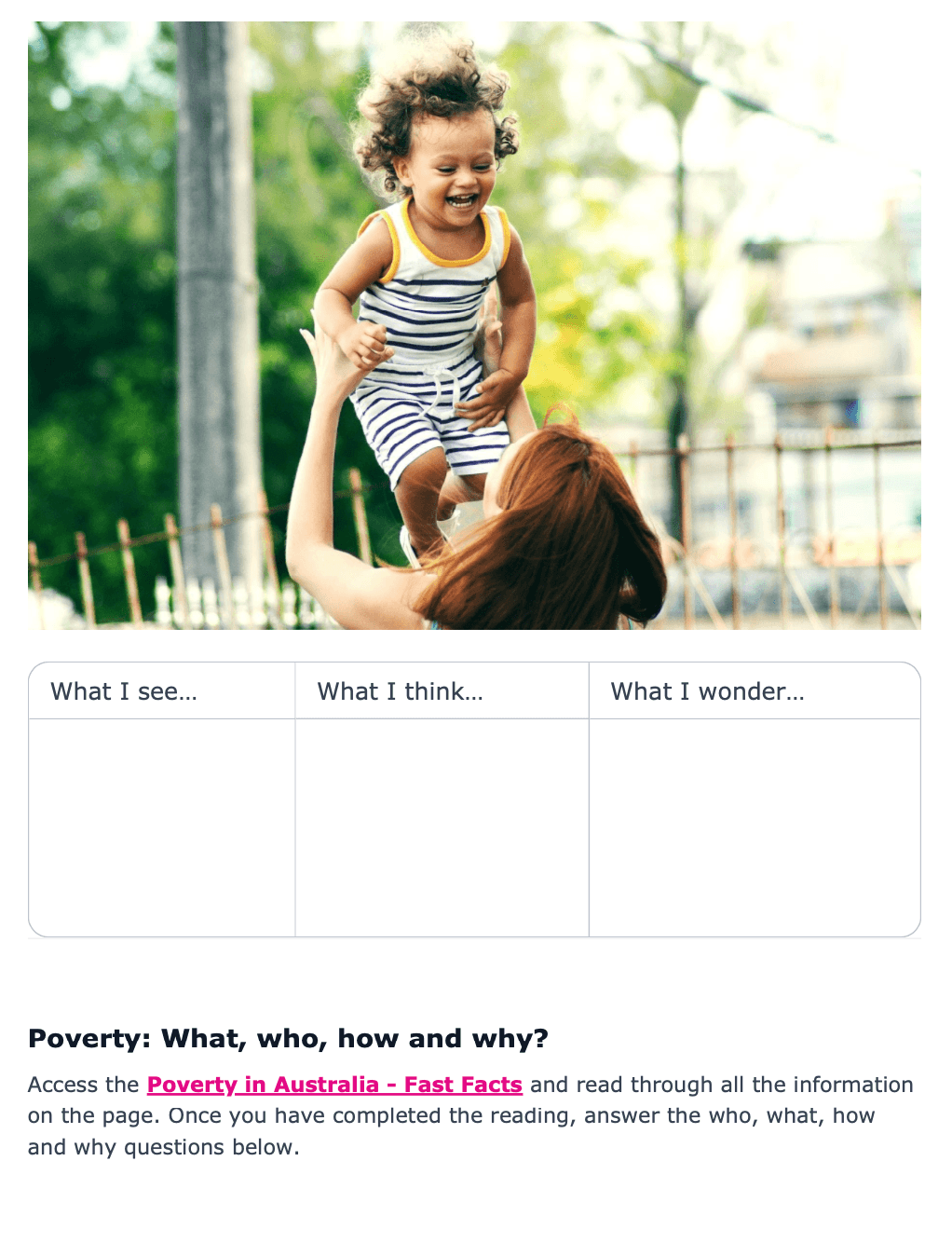
Teacher Content Info
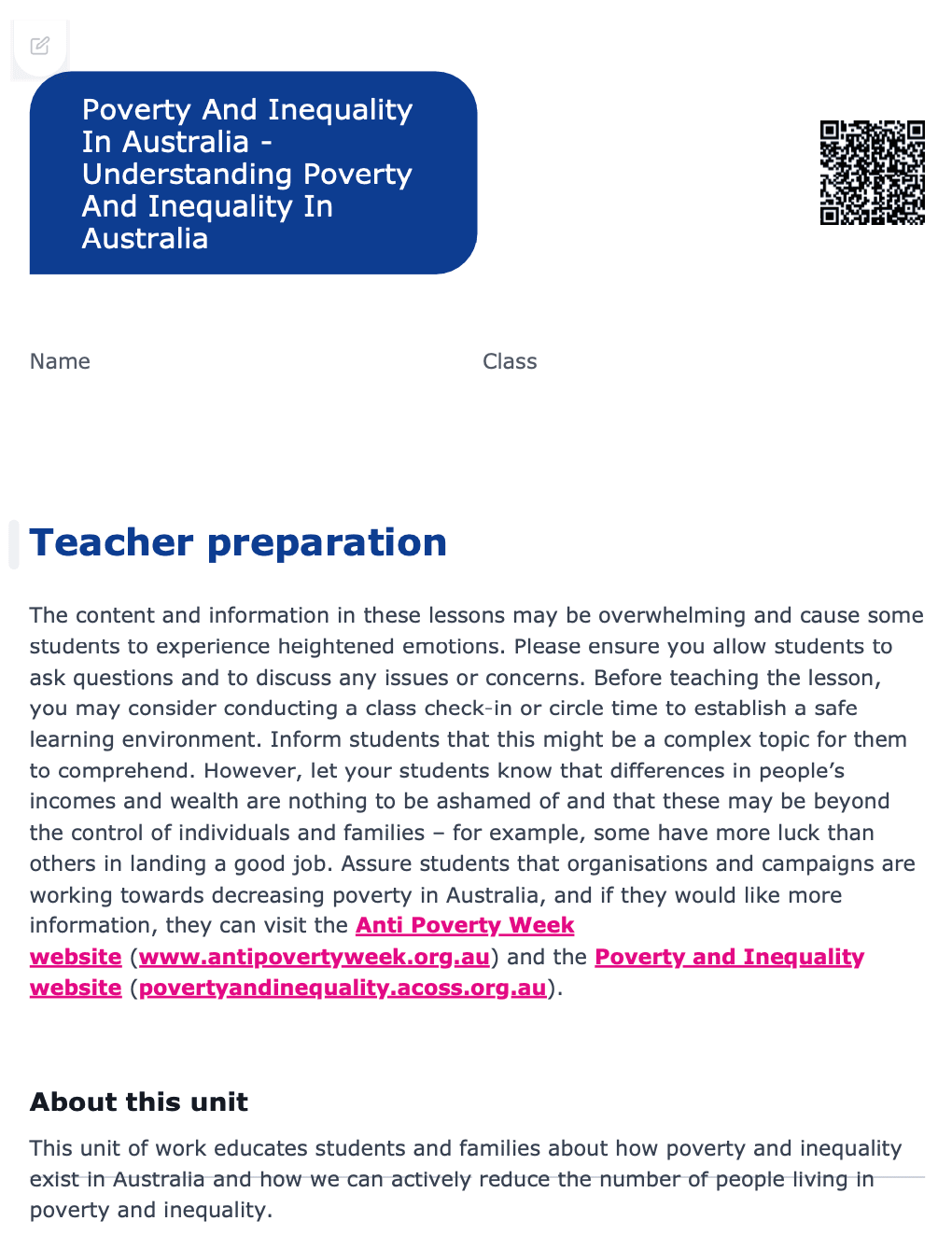
Inequality in Australia 2020 Factsheet
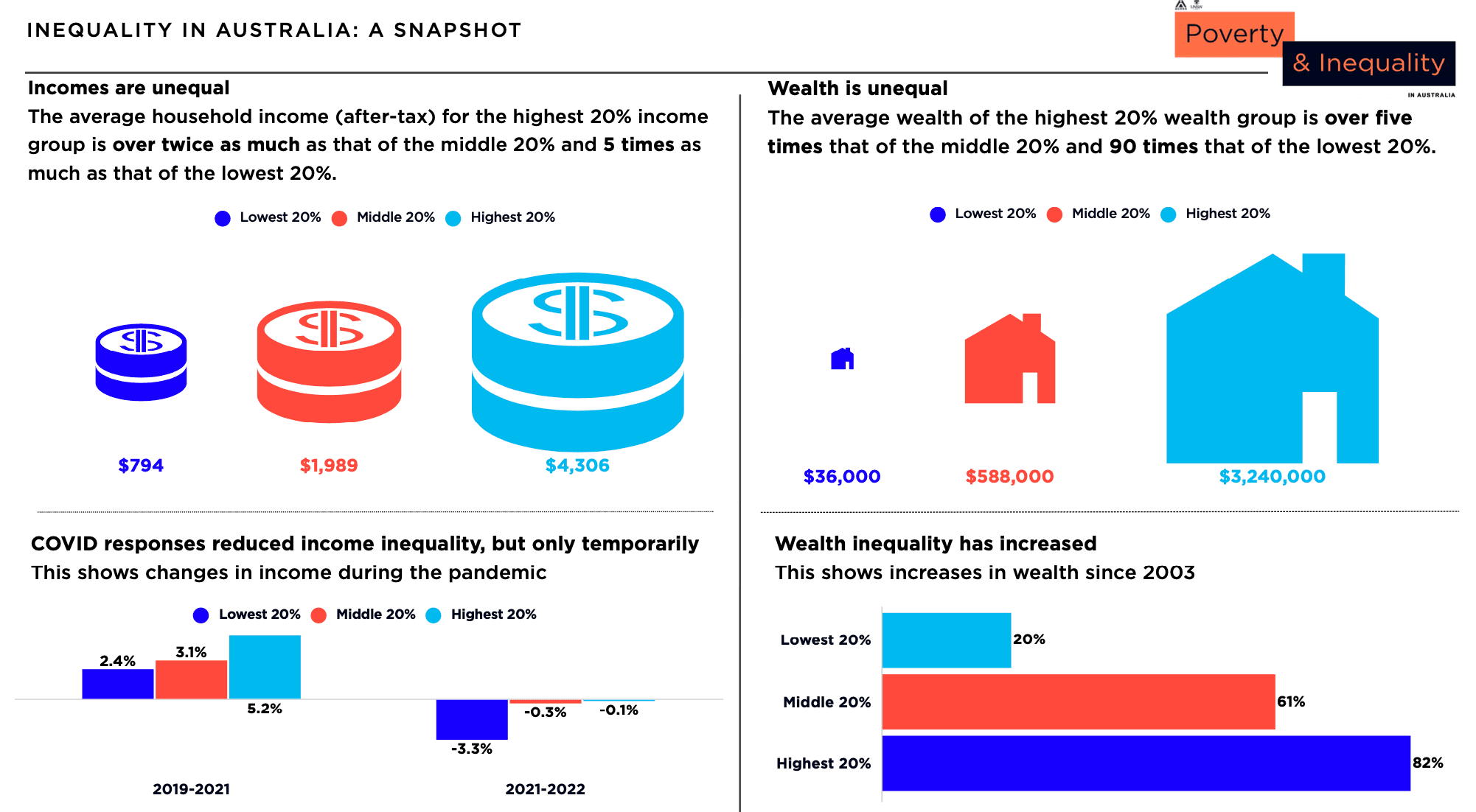
Poverty in Australia - Fast Facts
